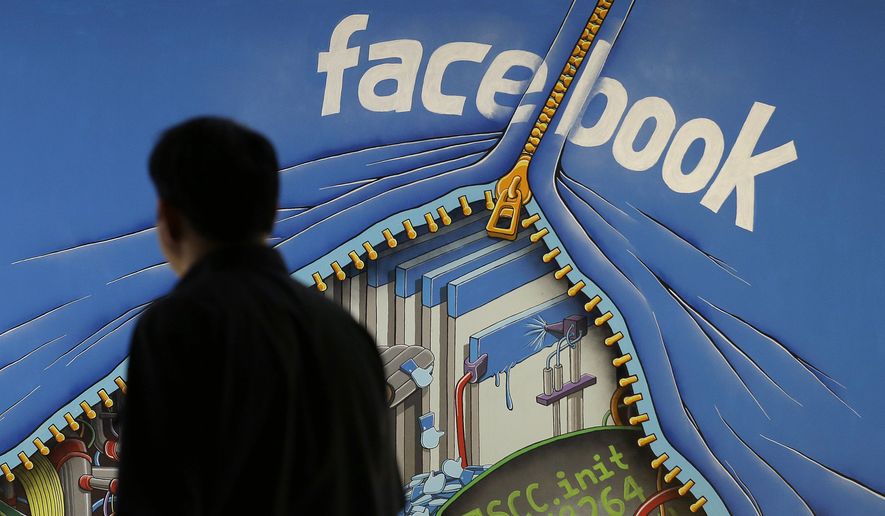OPINION:
Some conservatives have “unfriended” Facebook, meaning they don’t want to be a “friend” or user anymore. Friendship is a two-way street, even as defined on social media, and the news, denied by its management, that Facebook routinely suppresses news that appeals to conservative audiences, shouldn’t surprise anyone. Many newspapers and radio and television networks have been doing this for decades, tilting coverage to favor liberal and left-wing candidates and values.
The technology blog Gizmodo reported this week that a former contractor claims that Facebook news “curators” (meaning “editors”) routinely manipulate the trending news feed found at the top right corner of its Internet home page. The practice is intended to eliminate stories from conservative news sources such as The Washington Times and Breitbart unless the topics are “validated” by coverage by the left-leaning, such as The New York Times and CNN. This frustrates grown-ups who want to decide for themselves what news is fit to print, but the possibility that bias creeps into the coverage of the news is old news.
Facebook defended its procedures with argle-bargle from its lawyers: “There are rigorous guidelines in place for the review team to ensure consistency and neutrality. These guidelines do not permit the suppression of political perspectives.” The social network says computer algorithms perform most of the searching for the hottest topics, which may be true, but computers do not write their own software. Not yet. Humans do.
Facebook has an enormous audience — an estimated 1.6 billion users across the globe. Even a dash of its “like” or a smidgin of “dislike” can tilt public opinion in a powerful way. Senate Commerce Committee Chairman John Thune of South Dakota, a Republican, has written to Mark Zuckerberg, the chairman of Facebook, asking for an explanation of how trending topics are chosen.
Mr. Thune framed his inquiry as a matter of “consumer protection,” but other Republicans have been blunter. “Facebook must answer for conservative censorship,” says Republican National Chairman Reince Priebus.
Frustration and even anger is understandable, but the answer to suppression is not government intimidation. The Federal Communications Commission attempted in 2014 to plant “investigators” in newsrooms to see how editors make decisions about news coverage. Broadcasters were to be asked such questions as, “What is the philosophy of the news station?”
Outrage followed, and the scheme was quashed. How editors, or even “curators,” do their jobs is none of the government’s business. Newspapers and radio and television networks must always be outraged at such attempts, whether from left or right, because government curiosity will always lead to suppression of whatever displeases the government and the bureaucrats who impose policy.
Censorship, correctly understood, can only be imposed by governments. Private suppression of opinion — the government that can’t infringe your right to say what you please can’t make you say something you don’t want to say, either — is protected by the Constitution. The distinction is important. Facebook is a private company, and like a newspaper declining to print a letter to the editor, is entitled to choose whose speech to print, even if it distorts the debate. But it’s the best way to lose friends and squander influence.




Please read our comment policy before commenting.